
You don’t have to buy insecticides at the store. Just head to your pantry or herb garden, or plant some flowers that naturally keep away pests.
Plants that repel mosquitoes, flies, and other pests include kitchen staples like basil and garlic, and scents like lavender and peppermint. Who knew?
Here’s how to use these household ingredients to make a homemade insect repellent to protect you: The Texas A&M AgriLife Extension recommends crushing the leaves to extract the plant’s potent oils. Rub the oils on your skin or use them in a spray to keep away flying pests.
To keep insects out of your garden, the Cornell University Cooperative Extension recommends companion planting. What is companion planting? If you want to keep bugs away from your vegetables, plant some marigolds as companions.
So, what are these everyday plants that are also everyday insect deterrents?
13 Plants that Repel Bugs

1. Citronella grass
Citronella grass, not to be confused with a “citronella plant,” wards off mosquitoes.
Citronella oil, which is derived from citronella grass, is a popular ingredient in many commercial insect repellent products. The EPA registered citronella oil as an insect repellent in 1948.
Which is more effective: Citronella candles or incense? According to a research study testing citronella candles and incense, the candles had an insect bite reduction rate of 42.3%. The incense had an insect bite reduction rate of 24.2%.
Citronella also is as effective as DEET but loses its potency and protection as the oils quickly evaporate.
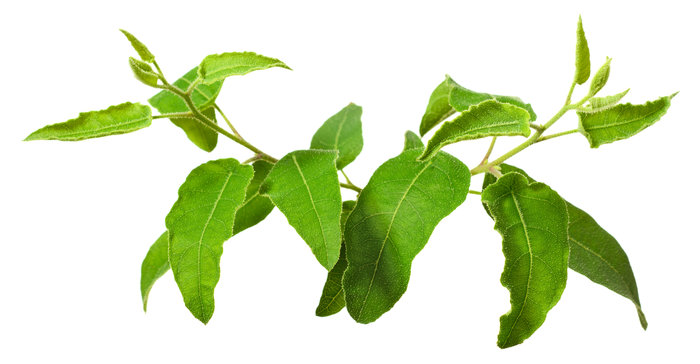
2. Lemon Eucalyptus
This natural repellent is extracted from the leaves of lemon eucalyptus trees.
The Centers for Disease Control and Prevention (CDC) recommends oil of lemon eucalyptus as an insect repellent. Oil of lemon eucalyptus contains PMD (para-menthane 3, 8 diol), its main bug-repelling factor.
According to a review of plant-based repellent efficacy, PMD provides high protection from insects over several hours. The essential oil alone is repellent for at most one hour.
Note: Keep in mind that “oil of lemon eucalyptus” is different from “lemon eucalyptus essential oil.” The essential oil is not as effective against mosquitoes as oil of lemon eucalyptus.
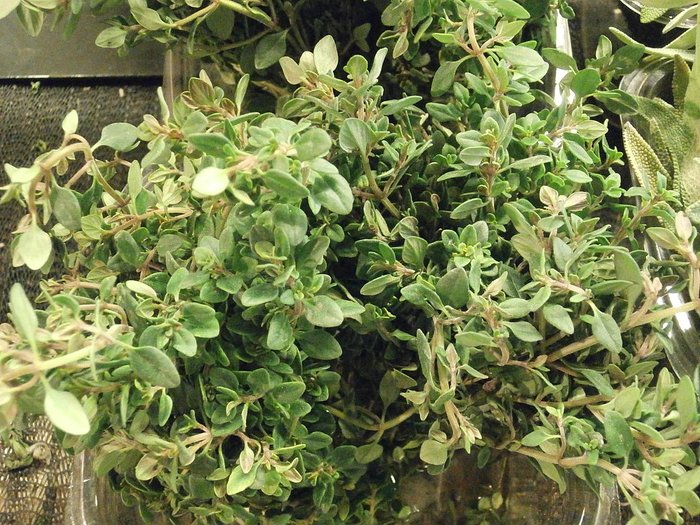
3. Lemon Thyme
Crush lemon thyme and you’ll have yourself a potent citrusy scent and homemade bug-repellent.
According to the Iowa State University Extension and Outreach, crushed lemon thyme has 62% of DEET’s repellency.

4. Basil
Basil is a mint family herb famous for its aromatic leaves, and medicinal properties, and – did you know? – its ability to keep away insects.
The New Mexico State University’s Dona Ana County Cooperative Extension Service recommends crushing and using basil in a spray to help repel mosquitoes.
In your garden, the Agriculture and Life Sciences Cooperative Extension at the University of Arizona recommends basil in companion planting to keep flies, potato bugs, and mosquitoes from other vegetables.
How this works: A strong-smelling plant like basil can help hide the smells of an insect’s favorite meal in your garden.
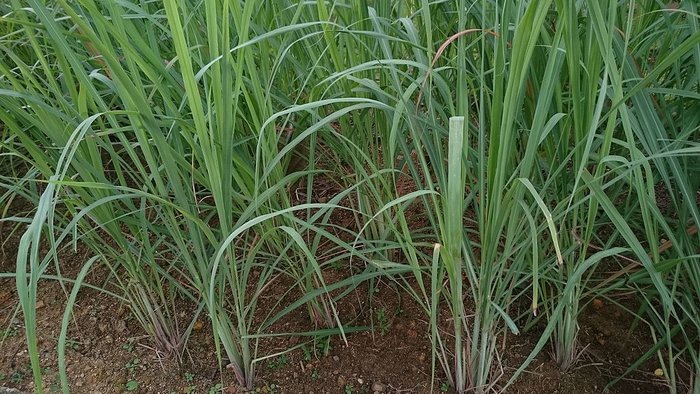
5. Lemongrass
Lemongrass is a tall, perennial grass, that yields the essential oil fragrance favored by people and abhorred by mosquitoes.
Gary Bachman, MSU Extension horticulture specialist, says lemongrass is one of the top herbs for deterring mosquitoes.
A field study in Bolivia found that lemongrass had significant protection against certain mosquito species (74% protection against An. darlingi and 95% protection against Mansonia spp. for 2.5 hours) when applied topically.
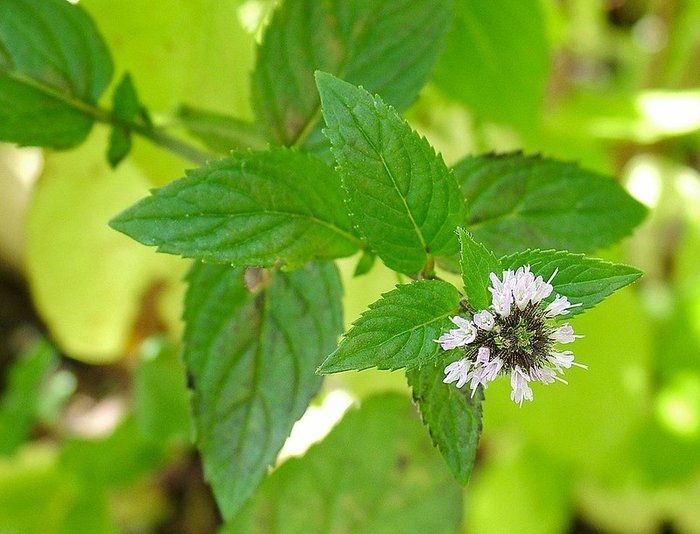
6. Peppermint
Peppermint has a fresh, cooling aftertaste, but that sweet fragrance also wards off insects.
According to the study of plant-based insect repellent efficacy, peppermint and other essential oils may help repel insects carrying malaria, filarial, and yellow fever for an hour to an hour and a half.
For your garden, the Cornell University Cooperative Extension recommends peppermint in companion planting to help repel aphids, cabbage looper, imported cabbageworm, squash bugs, and whiteflies.
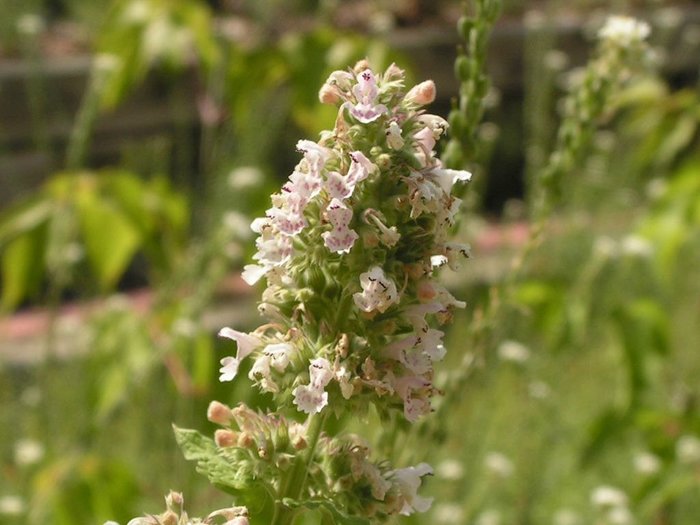
7. Catnip
Catnip, which drives cats crazy, keeps away flies and other insects.
A study found catnip essential oil repels 96% of stable flies and 79% against houseflies.
But that’s not all… The University of Illinois Extension recommends catnip to deter flea beetles, aphids, Japanese beetles, squash bugs, ants, and weevils.

8. Eucalyptus
Eucalyptus oil is highly sought after for its medicinal properties – and its ability to keep mosquitoes at bay for hours. A field study in Guinea Bissau found that eucalyptus leaves offers 72.2% protection from mosquitoes for two hours.
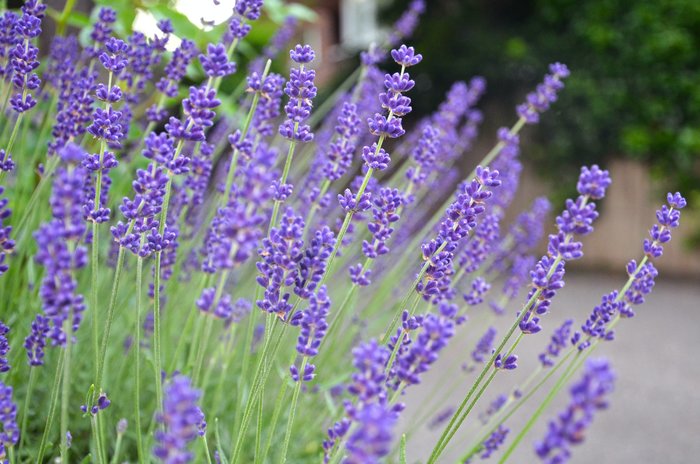
9. Lavender
The smell of lavender soothes people, but it really bugs pests.
Linalool is the compound that gives lavender its floral fragrance. A study found that indoor linalool diffusers may repel mosquitoes by 93% and that outdoor linalool diffusers may repel mosquitos by 58%.

10. Garlic
Garlic, a kitchen staple, is also a must in your garden.
The Cornell University Cooperative Extension suggests that planting garlic in your garden may help to repel garden pests and insects from eating your vegetables.
Pests repelled by garlic include imported cabbage worms, codling moths, cabbage maggots, cabbage loopers, aphids, snails, slugs, red spider mites, rabbits, peach borers, Mexican bean beetles, and Japanese beetles.
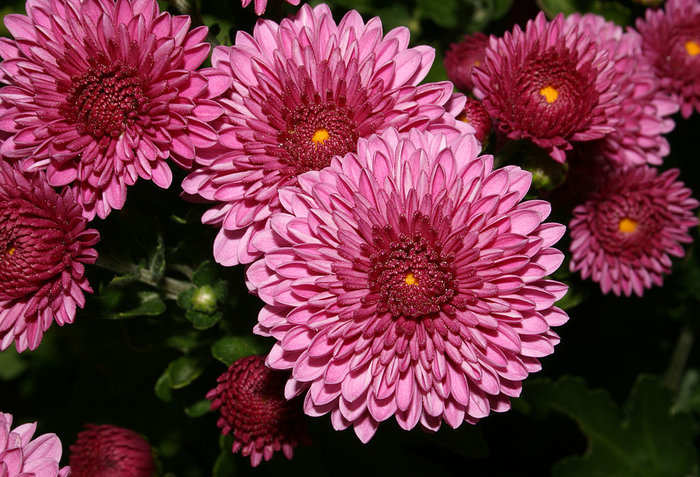
11. Chrysanthemums
Chrysanthemums make your yard pop with color, and mums yield pyrethrum, a key ingredient used in commercial insecticides.
According to the University of Illinois Extension, pesticides with pyrethrum can help control roaches, ticks, silverfish, lice, fleas, bedbugs, and ants. If you have mums on your porch or in your garden, they also may help deter Japanese beetles.

12. Marigolds
Marigolds bring an extra splash of color to your flower bed and they are a good cop, bad cop with insects. While they attract many beneficial insects, they are a stop sign for some other pests.
The University of Illinois Extension recommends French marigolds to help repel whiteflies and harmful nematodes and Mexican marigolds to deter rabbits and a variety of insects.

13. Petunias
Petunias are known for the variety of their colors and a very strong scent. What you may not know is that petunias can repel insects, including aphids, tomato hornworms, asparagus beetles, and leafhoppers, according to the University of Illinois Extension.
Furthermore, the Cornell University Cooperative Extension suggests that petunias deter squash bugs.
Take Care with Plant-Based Insect Repellents
Be careful with herbs and essential oils as insect repellents. Natural doesn’t always mean safe. Some people may have poor reactions to the potent oils rubbed on their skin or from the particles in the smoke of burned plants.
Note, too, that all not household remedies are safe for children. If you are creating natural insect repellent, do your research to ensure you and your family’s safety.
When to Call a Pest Control Professional
Call a pest control professional when insects are preventing you and your family from enjoying your outdoor space. If you have tried all of the natural and homemade remedies to rid your home and yard of pests, it’s time to get professional help.
Main Image Credit: Lavender / Kelly Rabie / Pexels